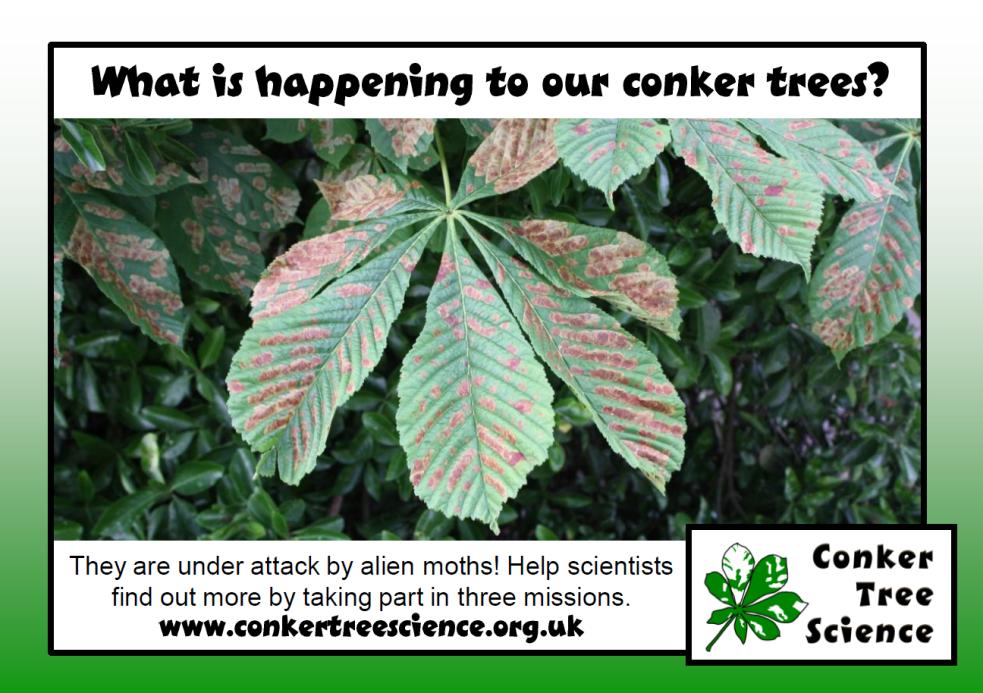Conker Tree Science
Conker Tree Science is a hypothesis-led citizen science project which engaged around 8,000 people with a pressing ecological problem of an invasive moth species affecting the UKs conker tree population.

Centre for Ecology & Hydrology
Conker Tree Science is a hypothesis-led citizen science project which engaged around 8,000 people with a pressing ecological problem of an invasive moth species affecting the UKs conker tree population. The project began in a Bristol shopping centre (training 11 postgraduates and reaching 1,100 people) and with a schools project engaging 900 children. It ultimately developed into a national citizen science project engaging a wider pool of participants to address two hypotheses about the ‘alien’ invasive moth and its natural pest controllers. Activities were undertaken by participants included observation and experimentation with supporting materials, data entry, visualisation and validation through a purpose-build website and a smartphone app, Leaf Watch, one of the first apps of its kind in 2011. Participants raised many questions (management of invasive species, conservation ethics etc.) which were answered on the project blog and in response to these questions added a third hypothesis to the project based on their ideas. The first scientific paper using the data, and establishing a framework for future hypothesis-led citizen science, was published in PLOS ONE in 2014.
The project sought to communicate how people are part of ‘our web of life’, reaching beyond academic audiences with meaningful and intentional engagement. Crucially the research was only possible because of the large-scale engagement with it. 1,810 children in 78 classes received visits from trained volunteers. 5,830 members of the public participated using online technology. Annual retention rates for the project averaged about 10%, but were about 25% for the 50% of keenest participants. Feedback via website and emails showed that many people were keen to communicate about their leaf-mining moth problems. The smartphone app was pioneering when launched in 2011 and following tweets by Steven Fry, reached #3 in Free Education apps on the App Store with 15,923 downloads. Crucially, the project team committed to maximising the ‘usability’ of the app for participants, not just functionality for project purposes.
